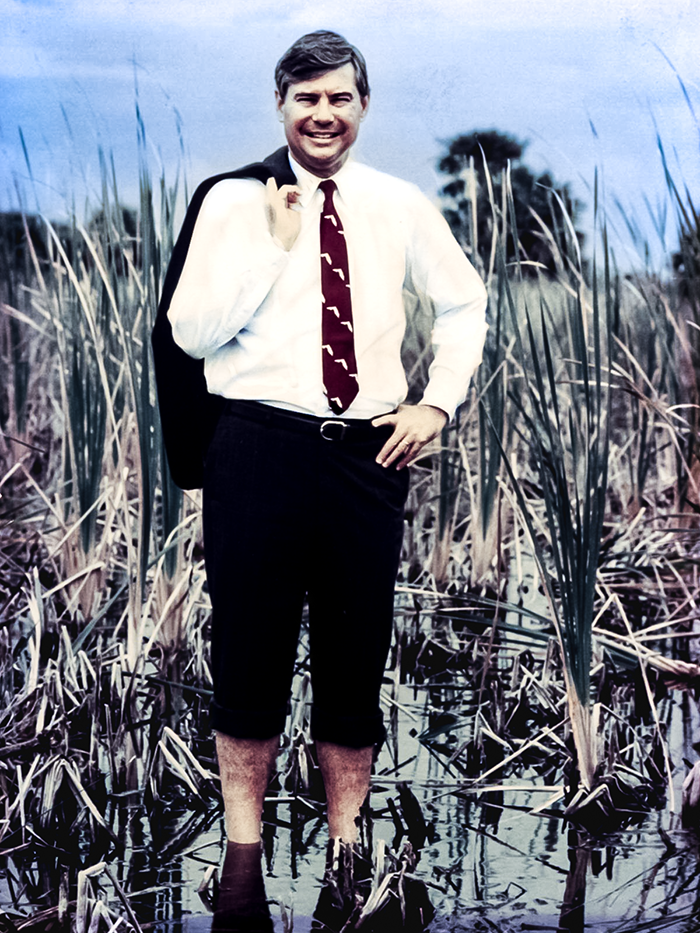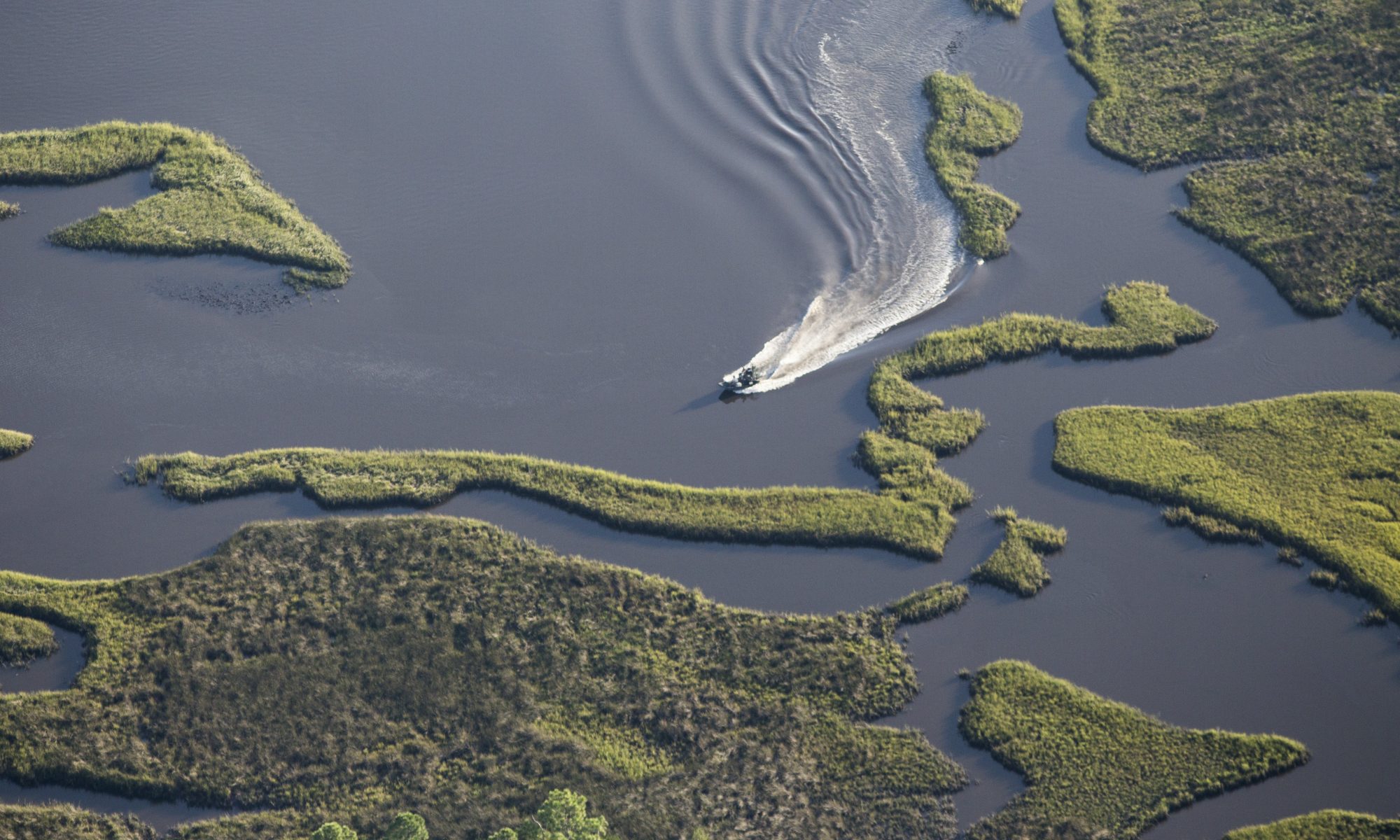A new program at the Bob Graham Center for Public Service aims to prepare University of Florida undergraduates from a variety of disciplines with the knowledge and skills to imagine and implement innovative solutions for a healthy and thriving Gulf of Mexico region.
In 2010, the nation’s reliance on the Gulf made international news when an explosion on the Deepwater Horizon oil platform killed 11 people and led to the largest oil spill in history. This catastrophic event highlighted the urgent need for comprehensive solutions to the complex environmental, health, social, and cultural challenges facing communities along the Gulf.
Now with criminal settlement funds from the companies involved in the BP Deepwater Horizon oil spill, UF Gulf Scholars will bring new Gulf-focused academic courses and public programs, experiential and place-based learning opportunities, and support for faculty-mentored Gulf Impact Projects to UF. Each of these components will culminate in a Gulf studies minor or certificate. With its home in the Center, the UF Gulf Scholars Program will honor Senator Bob Graham’s legacy by placing effective civic engagement, public service and leadership at the forefront of its programming.

“As Governor and Senator, Bob Graham sought to understand the complex relationships between Florida’s climate, landscape, waterways, and marine life. He implemented policies to restore the Everglades and has long advocated for Florida’s manatees. He was also appointed by President Obama to serve as co-chair of the National Commission on the BP Deepwater Horizon Oil Spill and Offshore Drilling,” said Graham Center director Matt Jacobs.
“The Graham Center is a natural home for an interdisciplinary program designed to help our undergraduates examine and address the many challenges facing Florida’s coastal and inland Gulf communities.”
UF Gulf Scholars is part of a national, five-year, $12.7 million pilot program funded by the Gulf Research Program of the National Academies of Sciences, Engineering, and Medicine. The third cohort of the program includes UF, Auburn University, Mississippi State University, Prairie View A&M University, and Texas A&M University. The program aims to prepare undergraduate students to address pressing environmental, social, health, energy, and infrastructure challenges in the Gulf of Mexico region. Last fall, UF President Ben Sasse awarded an additional $414,000 in strategic funds from the state legislature to bolster the $475,000 grant.
“The Gulf Scholars Program provides an opportunity to reach undergraduate students — many of whom have home ties to the Gulf region — and engage them in rigorous education and training on issues that directly impact their own communities,” said Karena Mothershed, senior program manager of the Gulf Research Program’s Board on Gulf Education and Engagement.
“We hope this program inspires students to envision a future in the Gulf region and work to make it an even better place to live, work, and thrive.”
To kick off the program, faculty from across campus are invited to apply for funding to develop new or enhance existing courses related to the Gulf. Students can expect to register for these classes as early as Spring 2025. Information about Gulf-focused research, internships, field excursions and support for Gulf Impact Projects will be announced in the coming months.
Rebecca Burton, a native of Pensacola, Fla. with a background in environmental journalism and science communication, will serve as program coordinator. In her previous role as communications manager for the UF Thompson Earth Systems Institute, Burton organized several environmental leadership experiential learning programs for students. She has written extensively about Gulf issues in her former role as communications coordinator at Florida Sea Grant and is the co-founder of The Marjorie, a Florida-based environmental justice reporting nonprofit.
“The Gulf of Mexico sits just 60 miles west of UF’s main campus, yet few students have had the chance to learn about its diverse identities — as a geographical formation, an ecologically important ecosystem, an economic engine, a cultural and spiritual resource, and a fount of aesthetic inspiration. The significance of the Gulf stretches beyond the beaches that pepper its coastline, and many Americans, whether they realize it or not, have benefited from its resources,” Burton said.
“The challenges facing the Gulf and its communities are messy, and we will rely on a wide variety of skill sets to adapt and plan for the future. We hope our programming will help students develop a strong sense of place and shared mission to ensure the Gulf’s ability to support future generations.”
An interdisciplinary faculty steering committee will work to guide program initiatives and ensure participation among UF’s 16 academic colleges.
“Our faculty possess the experience and expertise and our students the vigor and talent that makes the University of Florida an outstanding home for UF Gulf Scholars,” said steering committee member Jack Davis, Rothman Family Chair in the Humanities and distinguished professor in the UF Department of History.
“The collective assets at our command enable us to discover and forge providential relationships with the Gulf of Mexico, an interconnected human and ecological place. Its reach, like that of the Gator Nation, extends well beyond shorelines, and when the Gulf thrives, we thrive.”
Learn more: UF Gulf Scholars
